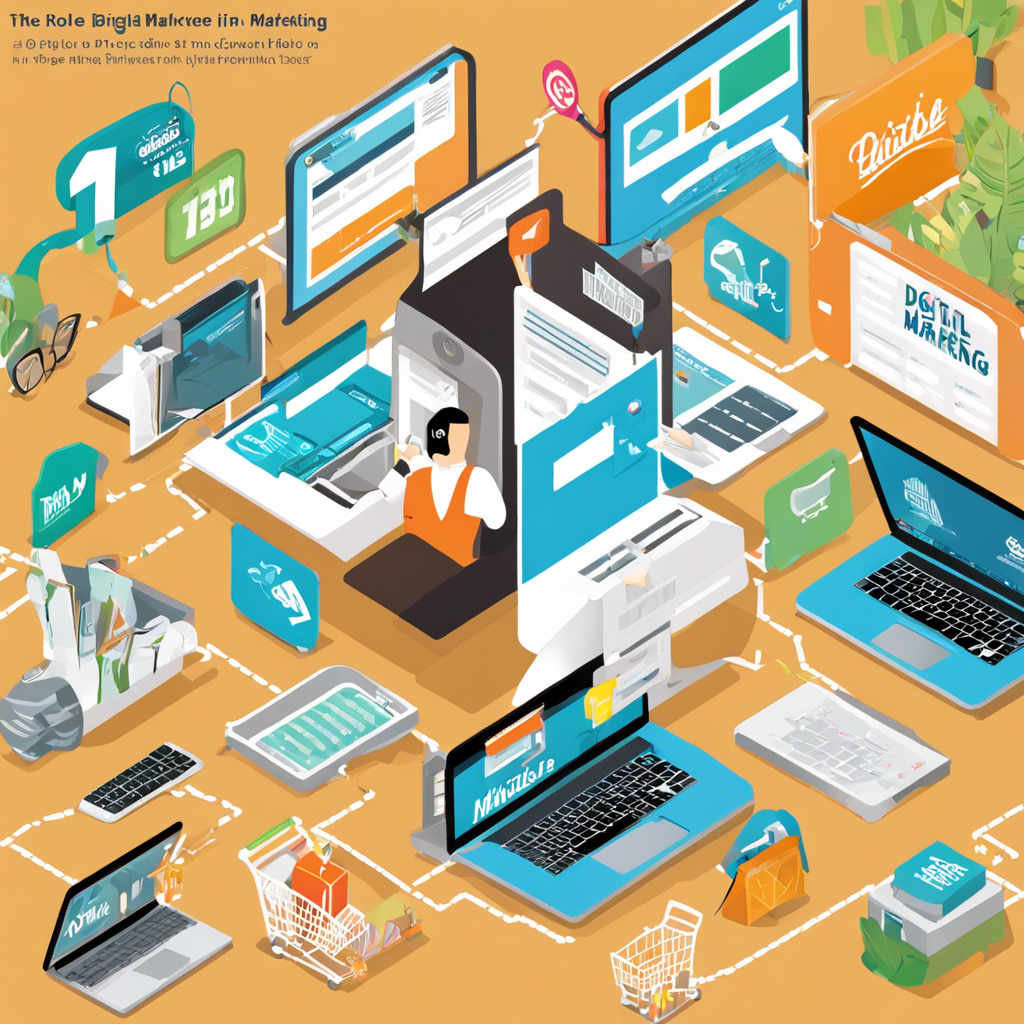Digital marketing is vital for e-commerce success, driving sales and brand awareness through online channels.
Digital marketing has become the lifeblood of e-commerce businesses, enabling them to reach and engage with their target audience in ways that were unimaginable just a few decades ago. With the advent of the internet and the subsequent rise of social media, online retailers have had to adapt their marketing strategies to stay competitive. This article delves into the multifaceted role of digital marketing in e-commerce, exploring its various channels, benefits, and best practices that contribute to a successful online business.
Understanding the Digital Marketing Landscape in E-commerce
The digital marketing realm for e-commerce is vast and ever-evolving, encompassing numerous channels and techniques. At the heart of this landscape are the websites and mobile apps that serve as the digital storefronts, allowing consumers to browse, select, and purchase products from the comfort of their homes.
However, the challenge for e-commerce businesses lies in attracting and retaining customers in a crowded and competitive online space. This is where digital marketing comes into play, offering a diverse range of strategies to promote products, engage consumers, and ultimately drive sales.
Key Digital Marketing Channels for E-commerce
There are several primary channels that e-commerce businesses leverage to reach their target audience:
1. Search Engine Optimization (SEO)
SEO is the practice of optimizing a website to rank higher in search engine results. For e-commerce, this involves ensuring product pages are easily discoverable by potential customers searching for specific items. Sites with good SEO leverage keywords effectively, have quality backlinks, and offer a seamless user experience, all of which contribute to higher search engine rankings and increased visibility.
2. Pay-Per-Click (PPC) Advertising
PPC advertising is a form of online advertising where advertisers pay a fee each time one of their ads is clicked. This is a powerful tool for e-commerce businesses as it allows them to target specific audiences with precision, ensuring that ads are shown to those most likely to make a purchase. Google Ads and Facebook Ads are two popular platforms for PPC advertising in e-commerce.
3. Social Media Marketing
Social media platforms like Instagram, Facebook, and Twitter have become integral to e-commerce marketing strategies. These platforms offer businesses a direct line of communication with their customers, allowing for the creation of engaging content, the sharing of product updates, and the building of a community around the brand. Influencer marketing is also a significant trend within social media marketing, where brands collaborate with influencers to promote their products.
Unleashing the Potential of Social Media
Social media is a powerful tool for e-commerce businesses, offering a direct connection to customers and a platform for building brand awareness. Effective social media strategies include:
- Regularly posting engaging content, such as product reviews, behind-the-scenes content, and customer testimonials.
- **Influencer partnerships:** Collaborating with influencers to promote products can significantly boost brand visibility and credibility.
- Implementing social media advertising campaigns to target specific demographics and interests.
Relevant External Links:
- How to Use Influencers to Grow Your E-commerce Brand
- A Beginner’s Guide to SEO for E-commerce
- Email Marketing for E-commerce
FAQs on Digital Marketing in E-commerce
Q: How can e-commerce businesses effectively use email marketing without overwhelming their customers?
A: A balanced email marketing strategy is key. Send emails regularly but not excessively, and ensure they provide value to the customer. Emails could include personalized product recommendations, exclusive discounts, or useful tips related to the products.
Q: What’s the best way to start with social media marketing for an e-commerce business?
A: Begin by identifying the platforms your target audience uses most and creating a consistent brand presence on those platforms. Share a mix of product-focused content, behind-the-scenes content, and user-generated content. Regularly engage with followers to build a community around your brand.
Conclusion: The Power of Digital Marketing in E-commerce
Digital marketing is an indispensable tool for e-commerce businesses, offering a multitude of ways to connect with customers, promote products, and drive sales. From SEO and PPC advertising to social media marketing and email campaigns, each channel plays a unique role in building an online brand and fostering customer engagement. By understanding and strategically utilizing these digital marketing tools, e-commerce businesses can thrive in today’s competitive online marketplace.
